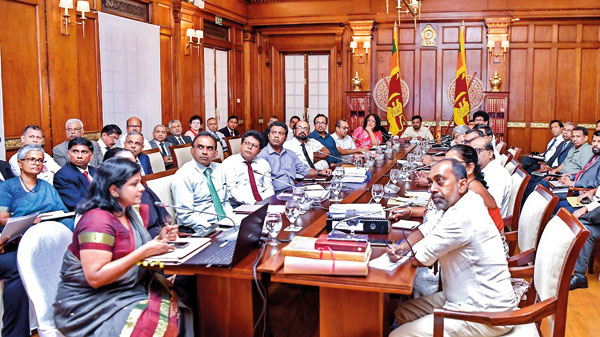October 06, Colombo (LNW): Sri Lanka is gearing up for a high-stakes evaluation of its measures to combat money laundering and terrorist financing, as the country enters its third mutual assessment under international standards in 2025.
The process, coordinated by the Financial Action Task Force (FATF) and its regional counterpart, the Asia Pacific Group on Money Laundering, was postponed earlier this year due to the country’s major elections.
This time, however, the review will be conducted under the FATF’s enhanced methodology, which goes beyond simply having laws in place and instead focuses on how effective those measures are in practice.
Sri Lanka’s track record has been mixed. Following previous assessments in 2006 and 2015, the country was twice placed on FATF’s “grey list” for shortcomings in its anti-money laundering and counter-terrorism financing frameworks. These listings also led to being blacklisted by the European Union, damaging Sri Lanka’s financial reputation before it was eventually removed from both lists by 2020.
Now, authorities say the country cannot afford a repeat.
“We are still rebuilding after multiple shocks — from the Easter Sunday attacks to the pandemic and the economic collapse,” said Subhani Keerthiratne, Director of the Financial Intelligence Unit (FIU), which operates under the Central Bank. “Being grey-listed again would bring consequences we are not in a position to absorb.”
A grey listing, while not a sanction, prompts global financial institutions to treat a country as high risk. This can impact everything from international banking relationships to sovereign credit ratings, ultimately raising borrowing costs and insurance premiums.
To strengthen its position, Sri Lanka has completed two national risk assessments, the most recent of which identifies drug trafficking, corruption, and trade-based money laundering as significant threats. A national policy has also been adopted to guide anti-money laundering efforts from 2023 to 2028, with 24 government institutions assigned implementation responsibilities. A high-level task force is monitoring progress.
Yet critical gaps remain. One such area is virtual assets — including cryptocurrencies — where regulatory oversight is still lacking. Under FATF rules, countries must oversee virtual asset service providers, but Sri Lanka remains only “partially compliant.” The Central Bank has urged the government to take a policy decision, and legal amendments are being drafted to address this issue.
Another major concern is transparency over beneficial ownership — identifying the true owners behind companies. FATF deems Sri Lanka non-compliant in this area. A recent amendment to the Companies Act now mandates companies to maintain ownership records, and efforts are underway, with international assistance, to build a central registry by 2025.
The FATF also places emphasis on actual outcomes. Financial institutions are expected not just to follow formal “know your customer” protocols, but to apply them in practice, along with continuous monitoring. The same applies to lawyers, accountants, real estate agents, and casinos, all considered vulnerable to misuse by criminals.
Sri Lanka’s FIU stands out for having legal authority to freeze accounts, halt transactions, and levy penalties — powers that many of its counterparts lack. Even so, challenges such as high staff turnover and weak inter-agency coordination hinder progress.
The country now has more convictions for money laundering than it did during its last review — 14, up from just one in 2015. But FATF will be looking for systemic effectiveness.
“We need to make financial crime unprofitable,” said Ms Keerthiratne. “It’s not just about jailing offenders. It’s about dismantling the economic incentives behind criminal activity.”
